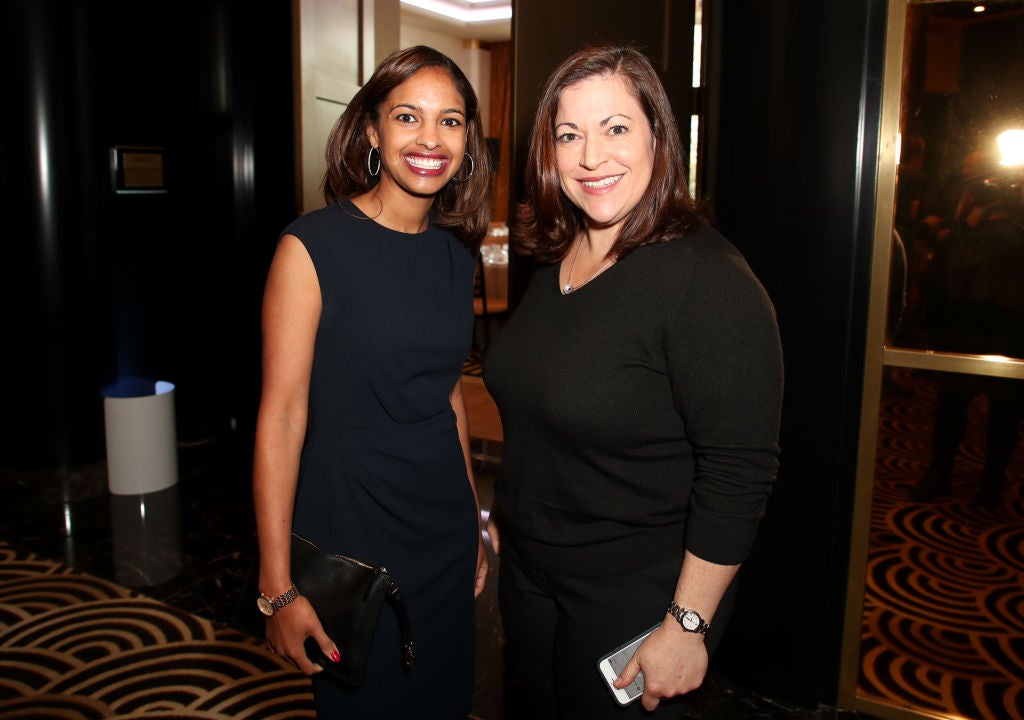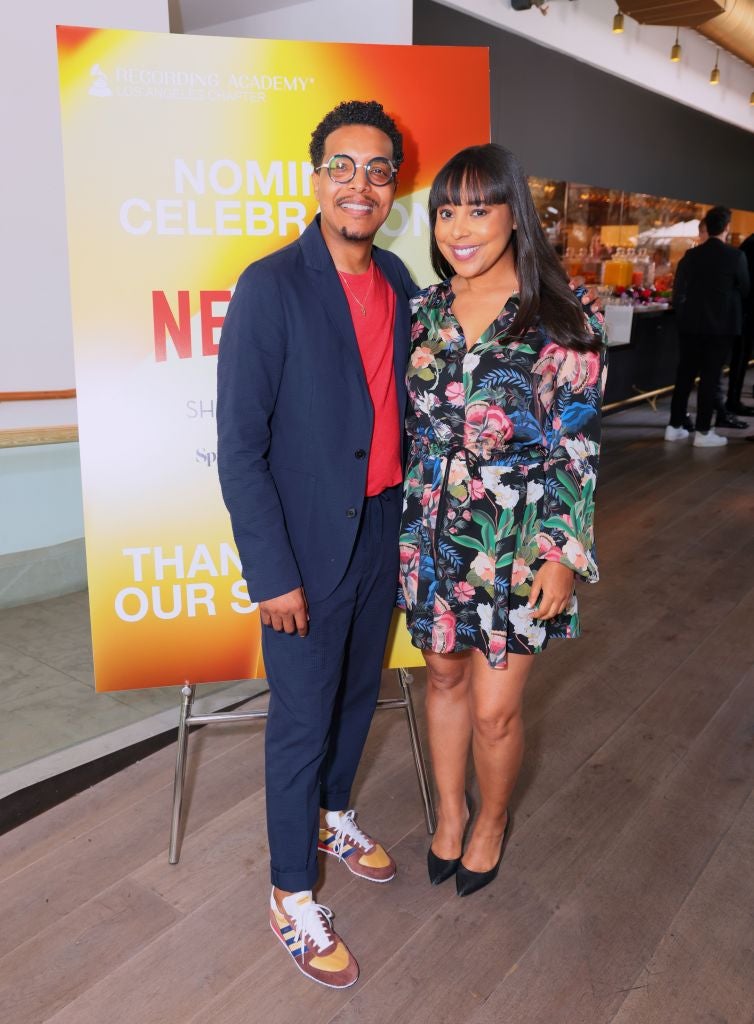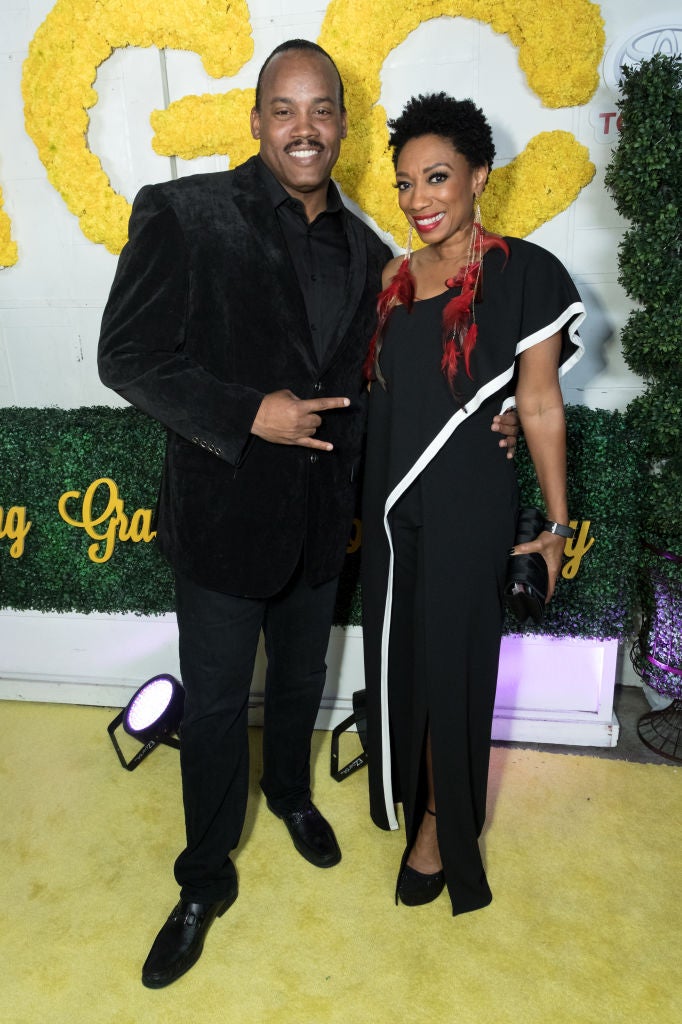ESSENCE is sitting down with creatives as part of a weeklong conversation #FromTheFrontLines centering their stories, triumphs, and struggles amid the WGA/SAG strike.
For the first time since 1960, both the Writers Guild of America (WGA) and Screen Actors Guild – American Federation of Television and Radio Artists (SAG-AFTRA) are both on strike. Wednesday marked the 100th day of the writers’ strike, and it looks like there’s “no end in sight to the standoff that deepened last month after the actors’ union joined writers on picket lines.”
With this hot labor summer being expected to turn into a hot labor fall, ESSENCE sat down with Marcie Cleary, Jalene Mack, and Jaia Thomas, three Black women entertainment attorneys, to discuss why writers and performers are striking, the union rules they have to abide by during the strikes, and what this will mean for Black creatives.
When asked why this is happening now, Cleary said, “This is an overdue reckoning. Significant changes in technology and business practices in the entertainment industry have not been dealt with in the collective bargaining agreements. The pandemic prevented the two sides from seriously engaging in these issues during the 2020 contract bargaining year, so these issues are just now being addressed in the agreements.”
Cleary also shared that both “the writers and actors are seeking a rewrite of the streaming residual formula so they are paid more for hit shows, with payments, called residuals, which are paid to writers and actors for the re-use of their work beyond the initial performance. The writers are also seeking a minimum for the staffing of TV programs, a minimum duration of the employment and increases in their minimum weekly rates.”
Clear continued, “Finally, both the writers and actors are seeking protection from artificial intelligence and how it could replace writers or use the actors’ likenesses without fair compensation.”
What it all boils down to is that, “the writers and actors are striking to force the Alliance of Motion Picture and Television Producers (AMPTP) to come back to the negotiating table with deals that more favorably address these issues,” said Cleary.
 Marcie Cleary and Amanda Harrell (Photo by Chelsea Lauren/Variety/Penske Media via Getty Images)
Marcie Cleary and Amanda Harrell (Photo by Chelsea Lauren/Variety/Penske Media via Getty Images)
On top of the WGA and SAG-AFTRA strikes, there may even be a new labor union on the horizon looking to join the fray. Reality television star Bethenny Frankel is leading the charge calling for unionization and has received support from Real Housewives of Atlanta star NeNe Leakes. Thomas disclosed that she’s negotiated some of these deals, and unlike their scripted counterparts, “reality stars don’t get residuals. It’s just a one-time flat fee per episode” in addition to the fact that “none of the stars for any of these shows are getting health insurance, dental insurance, or any other type of insurance whatsoever.”
Thomas also revealed that networks are also “taking a cut of any money that the stars are promoting through the show,” and there’s also language that permeates many of these contracts allowing “the networks to use these realities stars’ image and their likeness, forever, even once they’re off the show.” “And they’re not continuing to get compensated for the use of their name, image, and likeness in perpetuity,” said Thomas.
 BEVERLY HILLS, CALIFORNIA – MARCH 26: (L-R) Ryan Butler, VP, Diversity, Equity & Inclusion, The Recording Academy and Jaia Thomas attend the Los Angeles Chapter Nominee Celebration at Spring Place on March 26, 2022 in Beverly Hills, California. (Photo by Alison Buck/Getty Images for The Recording Academy)
BEVERLY HILLS, CALIFORNIA – MARCH 26: (L-R) Ryan Butler, VP, Diversity, Equity & Inclusion, The Recording Academy and Jaia Thomas attend the Los Angeles Chapter Nominee Celebration at Spring Place on March 26, 2022 in Beverly Hills, California. (Photo by Alison Buck/Getty Images for The Recording Academy)
For Mack, who is a SAG-AFTRA union member in addition to her work as a lawyer, this strike hits even closer to home. She emphasized that just because she’s striking, the work doesn’t stop, stating “as a performer, as a creative, we’re always working no matter what, strike or no strike,” advising that now is the time for Black creatives to be “working behind the scenes, so that they are armed and ready to go when the strike is over.”
While Mack is right about the work not truly stopping, there is some work that cannot be done, given union rules that must be abided by during the strike. According to Cleary, “The SAG rules bar actors from performing and publicizing projects produced by struck companies. The WGA rules prevent writers from writing for any struck company, or negotiating for such work. Union members can face discipline, including being banned from the union, for violating the strike rules.”
 LOS ANGELES, CALIFORNIA – NOVEMBER 05:Director Greg Carter and Entertainment Attorney and Actress Jalene Mack attend the Wendy Raquel Robinson And Amazing Grace Conservatory’s “There’s No Place Like Home” 20th AnniverSoiree at HNYPT on November 5, 2017 in Los Angeles, California.(Photo by Greg Doherty/Getty Images)
LOS ANGELES, CALIFORNIA – NOVEMBER 05:Director Greg Carter and Entertainment Attorney and Actress Jalene Mack attend the Wendy Raquel Robinson And Amazing Grace Conservatory’s “There’s No Place Like Home” 20th AnniverSoiree at HNYPT on November 5, 2017 in Los Angeles, California.(Photo by Greg Doherty/Getty Images)
The ramifications of these strikes are expected to be far-reaching. Thomas referenced the old adage, “when America gets a cold, Black people get the flu,” elaborating that strikes are “disproportionately affecting Black creatives. But it’s also affecting Black agents, Black lawyers, Black publicists, and Black managers and work is definitely drying up for a lot of Black people who are also behind the scenes.”
Cleary echoed this sentiment, stating “there is also a concern of what the industry will look like after these strikes. With budget cuts, reductions in the rank of development executives and the firing of DEI executives at the studios, there is concern that Black stories will not be as championed after the strikes have ended, as studios may no longer choose to invest in diverse content that the industry has traditionally viewed as ‘risky’.”
But being a Black person means we are often tasked with turning lemons into lemonade, and Thomas believes this is no exception, stating “we’re going to see an awful lot of creativity come out of this from Black creatives, and that could be new platforms, new streaming opportunities, or new ways to distribute content on social, so I think there’s going to be a lot of new creative ideas that come to fruition.”
What’s next? Possible political intervention. Thomas said she’s “heard rumblings that politicians could end up jumping in to help expedite the process,” adding that “the state or city might jump in and what that could look like is restricting tax credits to restricting different advantages or opportunities that studios and networks currently have.”
TOPICS: actors on strike black women in entertainment Black women lawyers sag wga writers on strikeThe post #FromTheFrontLines: These Women Entertainment Lawyers Break Down What Black Creatives Are Striking For appeared first on Essence.


0 Commentaires